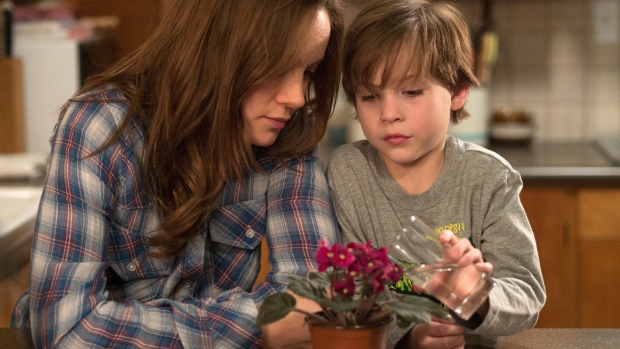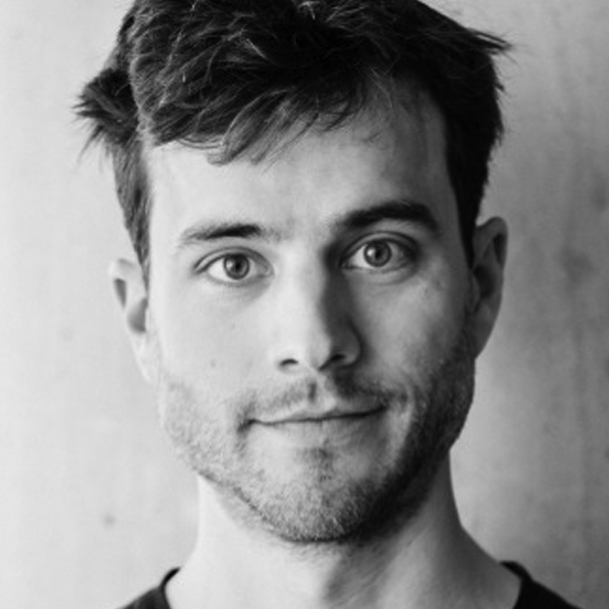To Begin. To Master.
Would you be excited to see a concert if you knew the lead guitarist had never picked up a guitar before? Would you pay good money to see a gallery of paintings by a small child who had just started playing with a brush?
In my case, probably not. Why? Because I believe the chance of seeing great art is pretty slim.
But when it comes to acting… I do do this. I often go see movies with actors who have never acted before.
And as an actor myself—and an addict to feeling special—it is a blow to my ego to realize that I’ve devoted my life to mastering an artistic pursuit that nine-year-olds and first-timers can do as well as, if not better than, me.
A painter uses paints and brushes to create their art, and a musician uses their instruments to create sound, but the actor’s job is to create a character, using themselves.
As an actor, my instrument is me, my humanity. And with it my job is to truthfully express the human experience. I’m not learning to play the theremin, I’m learning to play an instrument that every person on the planet is using every second of their lives.
But the art of acting obviously requires more than just the accomplishment of being human. It asks of the artist to share publicly aspects of their humanity we tend to keep to ourselves—and to do it on cue, in front of a camera or live audience, and from a truthful place. It is surprisingly fucking difficult to do.
To help myself accomplish this, I’ve been studying constantly for over twenty years, with world-renowned acting, voice, and movement teachers. I’ve been a regular on four different TV series, a leading man in multiple plays, movies, and short films. I don’t even begin to consider myself a master, but I know a thing or two about what it takes to be great. So when I see the masters in action—Christopher Plummer, Meryl Streep, Mark Rylance, Cate Blanchett, Bill Murray, Al Pacino, et al.—I have the upmost respect and awe, because their performances are the result of a lifetime of dedication to and practice of their craft. I know that if I want to achieve anything close to their level of artistry I better get back to the studio and continue to work at it. The way they did. It’s the logical artistic progression of Apprentice to Journeyman to Master…
But in my recent movie-going experiences, I’ve become more and more aware of novice actors jumping the queue of this artistic progression. Debuting in movies with performances that seem to rival those of the masters, and doing so having had little or no acting experience at all.
My ego and I would like to get to the bottom of this.
Let’s take recent Canadian “it” child Jacob Tremblay’s Canadian Screen Award–winning performance in Room. He’s nine. With very little acting experience, he embodied Jack, a young boy held captive in a room for his whole life, who, upon escape, experiences the world for the first time. A monster of a role, and instead of collapsing under the difficulty, he gave an incredible performance. His commitment to his sensorial experience and his access to emotional vulnerability puts my work to shame. And he’s nine! When I was nine I had trouble sharing my Micro Machines, let alone my broken heart.
Now, I’m aware of the role a director can play in “tricking” and/or “manipulating” a young actor into giving a brilliant performance, but if all it took for a brilliant performance is a director “tricking” their actors into sharing their humanity, then we could all have shelves lined with acting awards. As talented as directors who work with children are, they do not create the performances alone. The actors have to be open and willing to publicly go on the emotional journey they are asked to go on. If a little ignorance and a guiding hand was on their side while doing it, so what. It doesn’t make it any less impressive.
Nor does it make it any less infuriating.
It feels like I’m like a professional athlete, training every day to build my strength and flexibility to perfect the mechanics of my delivery, to one day throw a 95 mph fastball into a baseball strike zone. When I hear Jacob Tremblay talk about his experiences in Room, it’s like reading that the San Francisco Giants’ drafted a nine-year-old boy as their starting pitcher, a kid who throws a 101 mph, and when asked how he does it, says, “Well, the coach asked me if I could throw the ball really fast, and so I thought about it, and then I said yes, and I went out there, and I just threw the ball really fast.”
I had a similar experience watching Nick Serino in the beautiful Canadian feature Sleeping Giant, directed by first-time feature film director Andrew Cividino. Nick is seventeen years old. He was cast locally in Thunder Bay, having wandered into the local casting call for the movie without a single acting credit to his name. His performance as Nate haunts me to this day. So dangerously vulnerable, so flawed and broken-hearted. So specific. So nuanced in his choices. He inhabited the journey of his character with complete ease. How did he do that?! It can’t be due to his craft; he’s never acted before. But that didn’t stop him from creating a performance that garnered him a Canadian Screen Award for Best Supporting Actor.
I’ve been working and training longer than he’s been alive, and I’m still hoping to one day be able to achieve a performance that is as good as that.
These exceptional performances from novices are not unique to kids either. There’s Barkhad Abdi, a limo driver who got an Academy Award nomination for his acting debut in Captain Phillips at twenty-seven, Gabourey Sidibe for her role in Precious at twenty-five. The list goes on and on. These rookies should be walking onto movies sets with the wobbly knees of newborn fawns, but instead are galloping stallions of artistic success.
Mastering a craft sometimes feels like climbing a steep mountain. Natural talent only carries you up so far, the majority of the climb is done with backbreaking, un-flashy, tedious, daily grunt work. It’s not glamorous. Not even in show business. But I remind myself that the joys of artistic accomplishment will be worth the pains and tears it takes to get there. And then I look up and see Jacob Tremblay and Nick Serino dancing at the top of the mountain, fresh faced and un-scarred, having seemingly arrived up the other side of the mountain via some magic tour bus that I didn’t know existed.
One can’t help but ask the question: Should I say fuck it and give up now, or swallow my pride and be inspired by this work?
After fifteen years of working, the complications of the business have left their wear and tear. My rejections and failures now outnumber my successes, when, in the beginning, it used to be the other way around. Blocks and flaws have appeared where they didn’t used to be. Insecurities and doubts have built up. These are the battle scars of putting an open heart on display time and time again.
The performances from these novice actors are of course not technical masterpieces, and despite their brilliance, these actors have room to grow. But I have to admit, they have inspired me. Because they remind me of something special—as an audience member and fellow artist—that opening my heart is simultaneously both incredibly difficult, and incredibly easy.
I’m inspired because they achieved what the art form is designed to do: remind us that we are all capable of being our true human selves without the guarded behaviours we’ve adopted to protect our hearts from the possibility of embarrassment. And as those of us who have put our hearts on the line—only to have them broken—know, the next time is not so easy.
Opening your heart is not something that is taught with training. The tools I learn from my teachers and from my daily practice are to help overcome the resistance that builds each time I’m asked to publicly open my heart again knowing that heartbreak is imminent. My protective ego versus my artistic impulses. But my ability to open my heart and love out is innate. It’s innate in every single one of us. It’s the design of the human instrument. We can open our hearts, and share who we are every second of our lives, no matter what our training is… All that is required is that we make that choice to do so.
Artist or not.
When given the opportunity to be vulnerable publicly, these novice actors made that choice and said yes, no matter how easy or difficult it was for them to do so. That is inspirational to me.









Comments